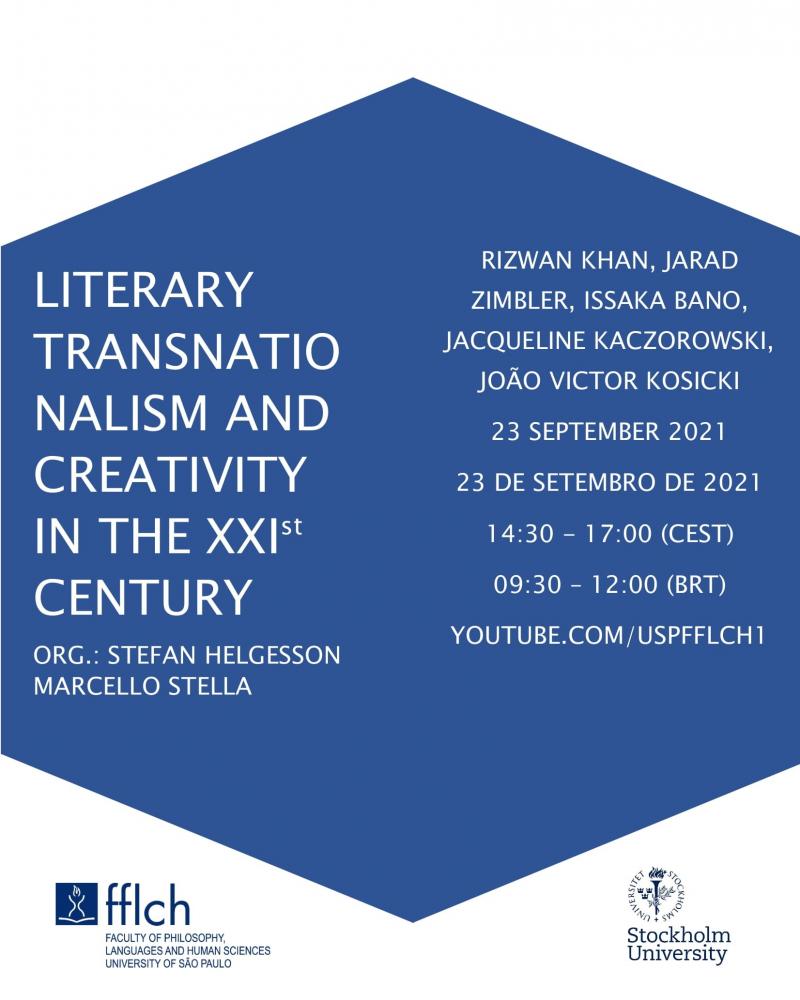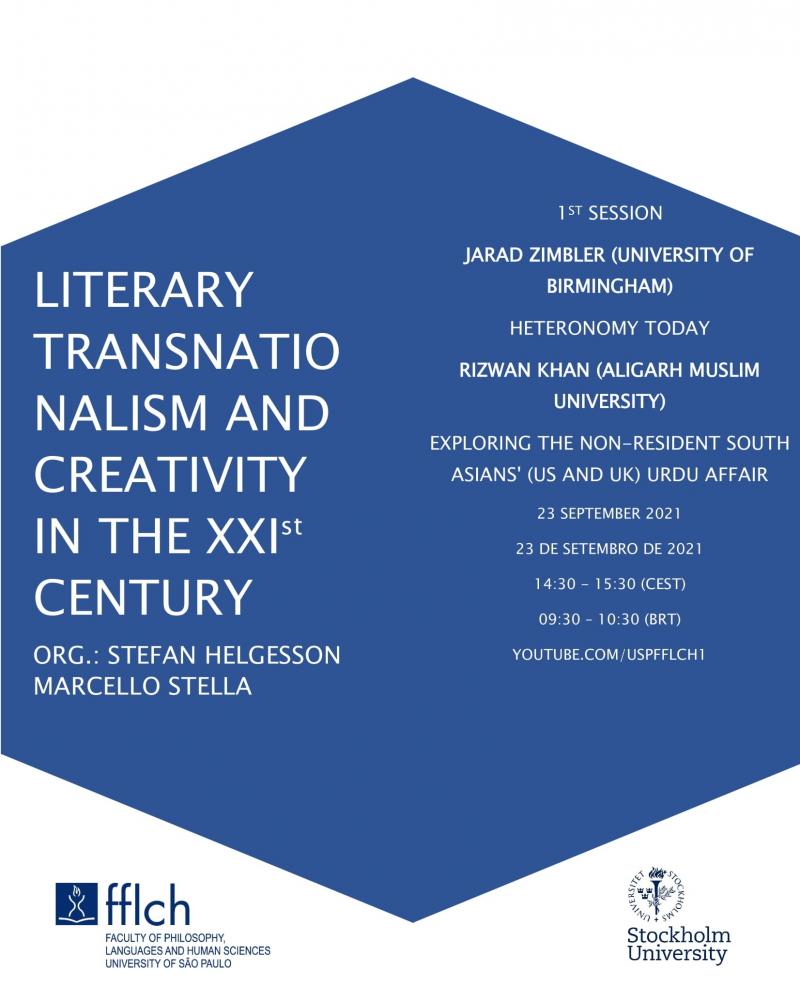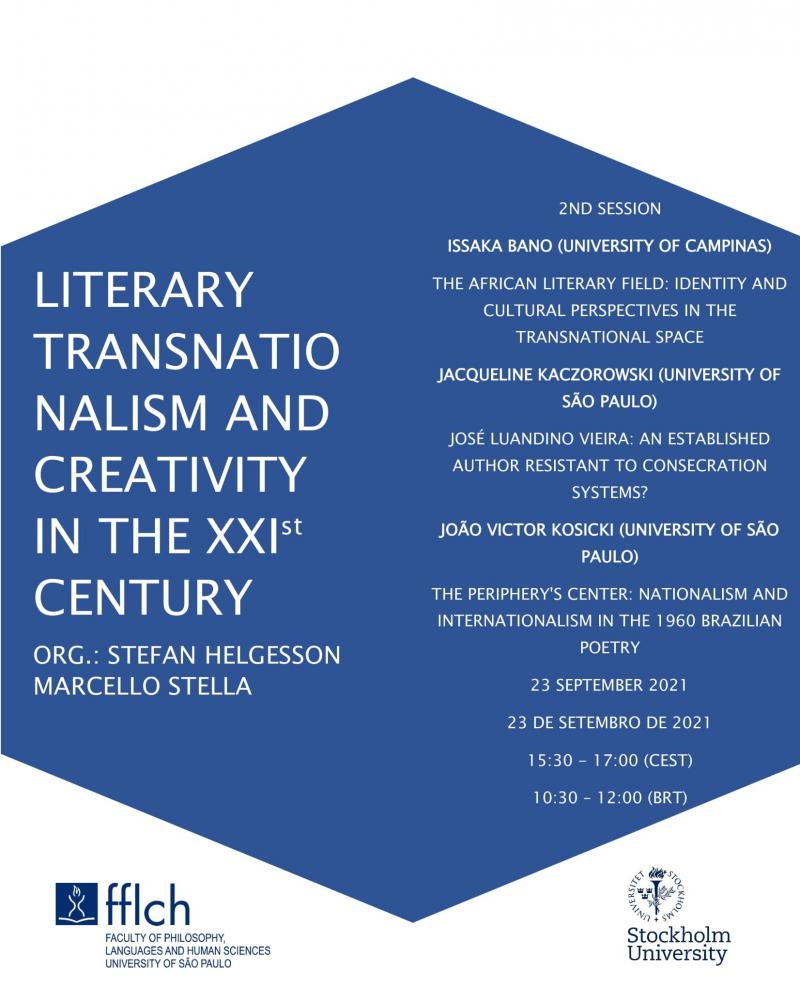With the globalization of cultural fields, increasingly intricate means of producing inequality and cultural monopolization have evolved. Contrary to the neoliberal dogma of the freedom of the open market, the international economy of symbolic goods, as conceived by Pierre Bourdieu, is not in any way free from barriers or constraints. As discussed by John B. Thompson, the emergence of huge transnational publishers, superagents and the consolidation of Amazon’s market hegemony have reinforced the uneven dynamics of book production and translation capacity between countries and languages. Despite these structural obstacles there are an important number of projects, festivals, publishers, writers and cultural brokers that try to invent new ways to resist the complete economic mastery of the literary universe.
Thus, one objective of this online seminar is to reflect on how writers, audiences and publishers attempt to sustain their creative projects within the current cultural economy and media ecology. On the other hand, it is equally necessary to focus on the economic and governmental mechanisms whereby corporations and states shape literary global markets, regulate politics of translations, support alternative events and publications, or promote already consecrated authors and works.
Besides papers that address the contemporary situation, we also invite contributions that offer an historical perspective on current developments. Individual presentations should be between 15 minutes long.)
Marcello Stella, Universidade de São Paulo
Stefan Helgesson, Stockhom University
______________________________________________________________________________________________________________________________
Com a globalização dos campos culturais, meios cada vez mais intrincados de produzir desigualdade e monopolização cultural evoluíram. Ao contrário do dogma neoliberal da liberdade de mercado, a economia internacional de bens simbólicos, tal como concebida por Pierre Bourdieu, não está de forma alguma livre de barreiras ou constrangimentos. Conforme discutido por John B. Thompson, o surgimento de grandes editoras transnacionais, superagentes e a consolidação da hegemonia de mercado da Amazon reforçaram a dinâmica desigual de produção de livros e capacidade de tradução entre países e idiomas. Apesar desses obstáculos estruturais, existe um número importante de projetos, festivais, editores, escritores e agentes culturais que tentam inventar novas formas de resistir ao domínio econômico completo do universo literário.
Assim, um dos objetivos deste seminário online é refletir sobre como escritores, públicos e editores tentam sustentar seus projetos criativos dentro da atual economia cultural e ecologia da mídia. Por outro lado, é igualmente necessário focar nos mecanismos econômicos e governamentais pelos quais as corporações e os Estados moldam os mercados literários globais, regulam a política de traduções, apoiam eventos e publicações alternativas ou promovem autores e obras já consagradas.
Marcello Stella, Universidade de São Paulo
Stefan Helgesson, Universidade de Estocolmo







